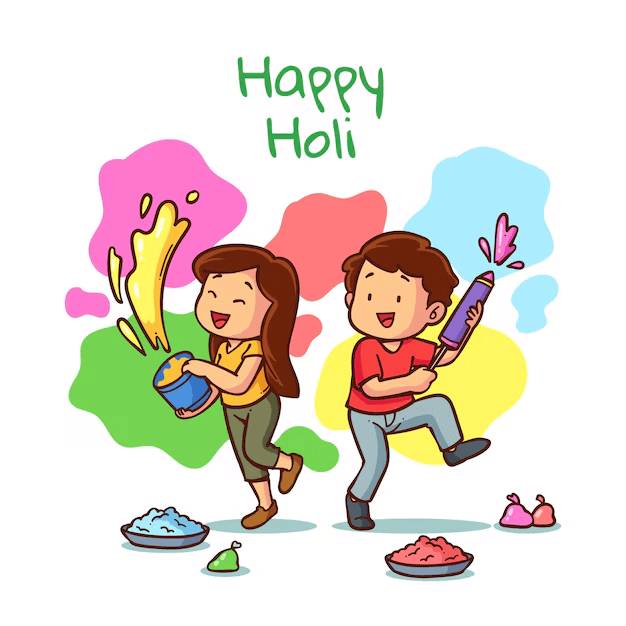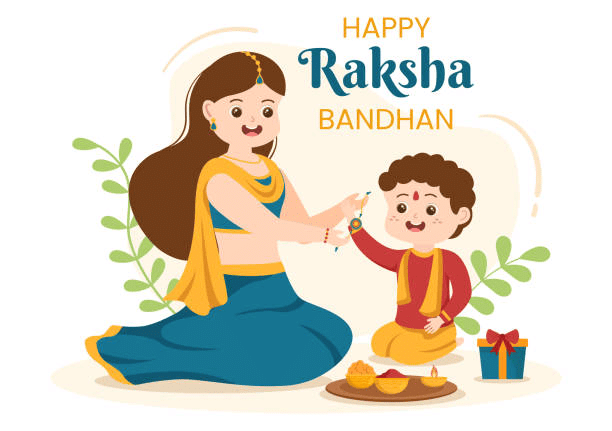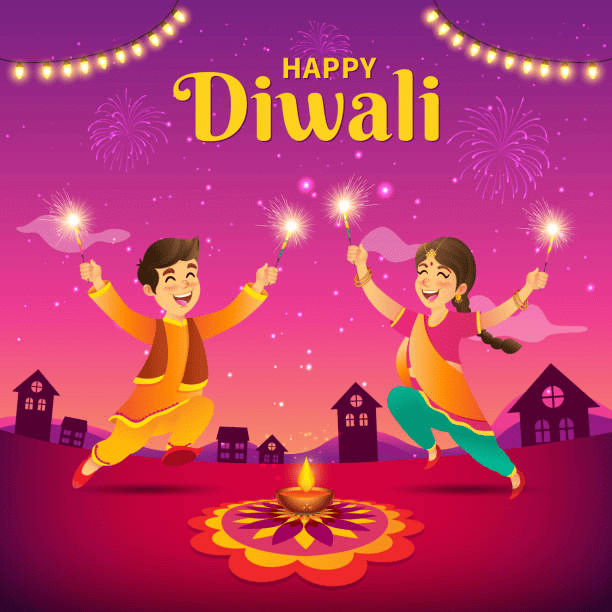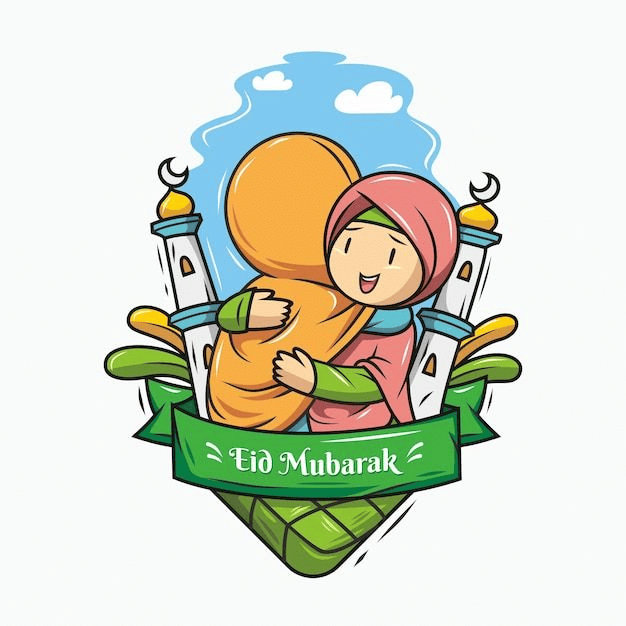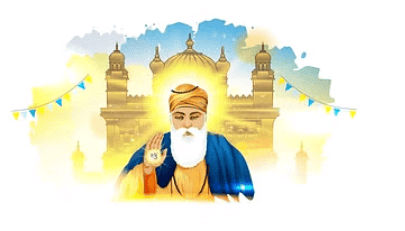EVS Festivals - CBSE Worksheets- 1 Solutions
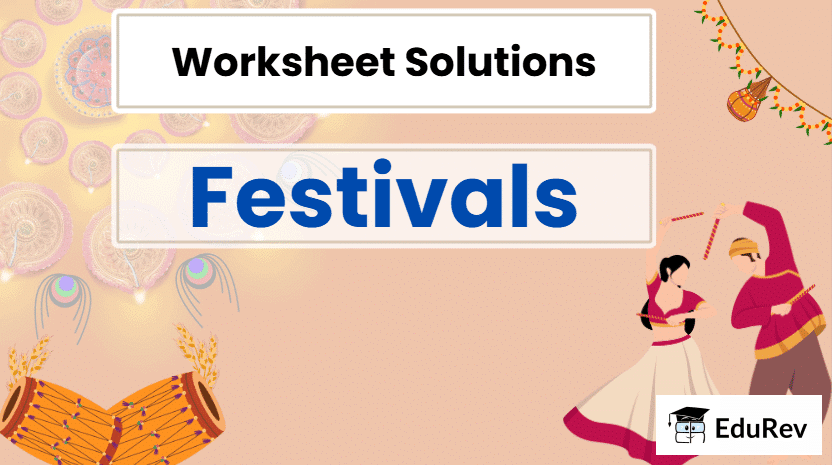
Q1: Name the Festivals.
(i)
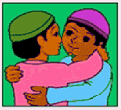
(ii) 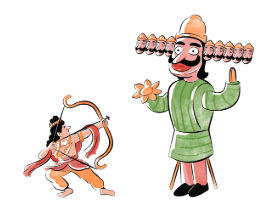
(iii) 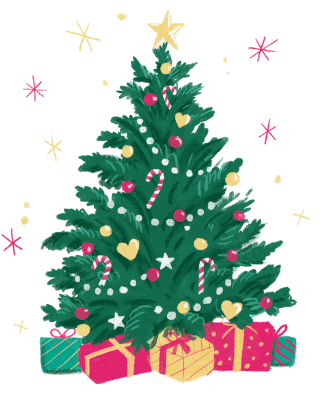
(iv) 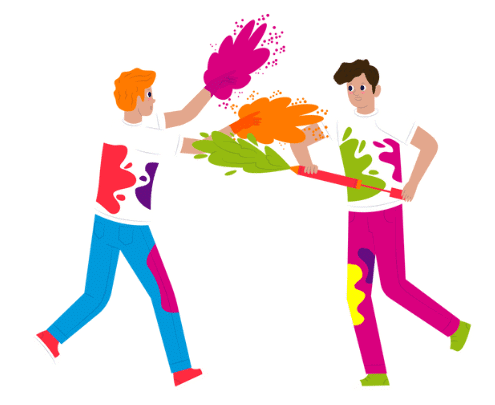
(v) 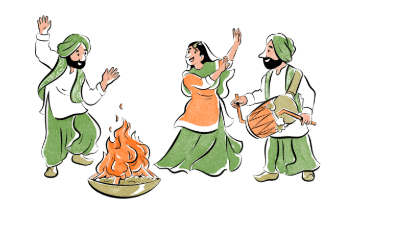
Ans:
(i) Eid:
This festival is celebrated with a delicious sweet called seviyan, and everyone gathers to pray and enjoy time with their families.
(ii) Dussehra:
This festival celebrates the victory of good over evil, where people watch plays and see big statues of Ravana being burned.
(iii) Christmas:
This is celebrated on December 25th, and people decorate trees with lights, ornaments, and gifts to celebrate the birth of Jesus.
(iv) Holi:
This is the festival of colors! People throw colored powders at each other and celebrate the arrival of spring.
(v) Lohri:
This festival is celebrated in the winter. People gather around bonfires, sing traditional songs, and enjoy eating popcorn and sweets.
Q2: Fill in the blanks.
 (i) ________ is the festival of colours.
(i) ________ is the festival of colours.
(ii) ________ is the festival of brothers and sisters
(iii) _________ is the festival of lights.
(iv) On _________ we eat seviyan.
(v) On _________we go to Gurudwara.
Ans:
(i) Holi is the festival of colours.
On this day, we throw colored powders and water on each other to celebrate happiness.
(ii) Rakhi is the festival of brothers and sisters.
On this day, brothers and sisters celebrate their love for each other. Sisters tie a special thread called Rakhi on their brother’s wrist.
(iii) Diwali is the festival of lights.
Diwali is the festival of lights. People light up their homes with diyas (small oil lamps) and decorate with bright lights and fireworks.
(iv) On Eid we eat seviyan.
On Eid, we eat a special sweet dish called seviyan, which is made of milk and vermicelli.
(v) On Gurupurav we go to Gurudwara.
On Gurpurab, we go to the Gurudwara, a special place where Sikhs pray. People listen to prayers and share food called langar.
Q3: Draw a thing for each of the following festivals.
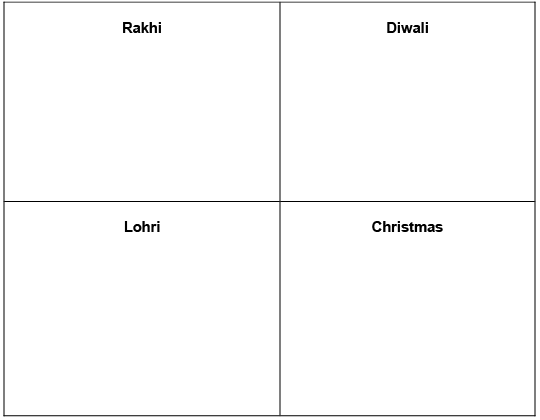
Ans:
This is a fun activity where you get to draw! For each festival, think about something special that happens and draw a picture. Let’s see what we can draw:
- For Eid, you can draw a bowl of seviyan, the yummy sweet that we eat.
- For Holi, you can draw colored powders or a picture of people playing with colors.
- For Diwali, you can draw a diya or a beautiful lamp that we light during the festival.
- For Gurpurab, you can draw a Gurudwara, the special place where Sikhs pray.
- For Raksha Bandhan, you can draw a Rakhi, the beautiful thread that sisters tie on their brother’s wrist.
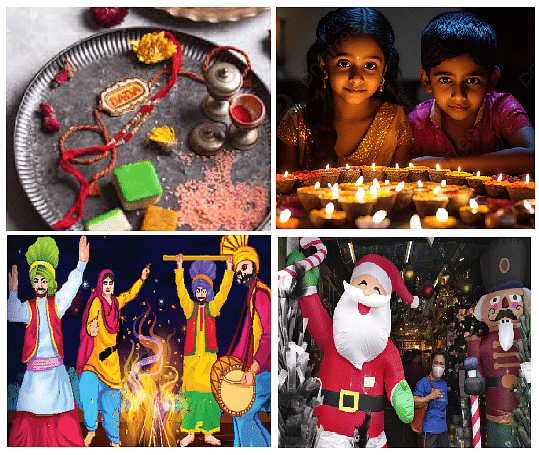
|
33 videos|215 docs|44 tests
|
FAQs on EVS Festivals - CBSE Worksheets- 1 Solutions
| 1. What are the main festivals celebrated around the world? |  |
| 2. How do festivals impact cultural identity? |  |
| 3. What are some common themes found in festivals? |  |
| 4. How can festivals promote tourism? |  |
| 5. What role do food and cuisine play in festivals? |  |

